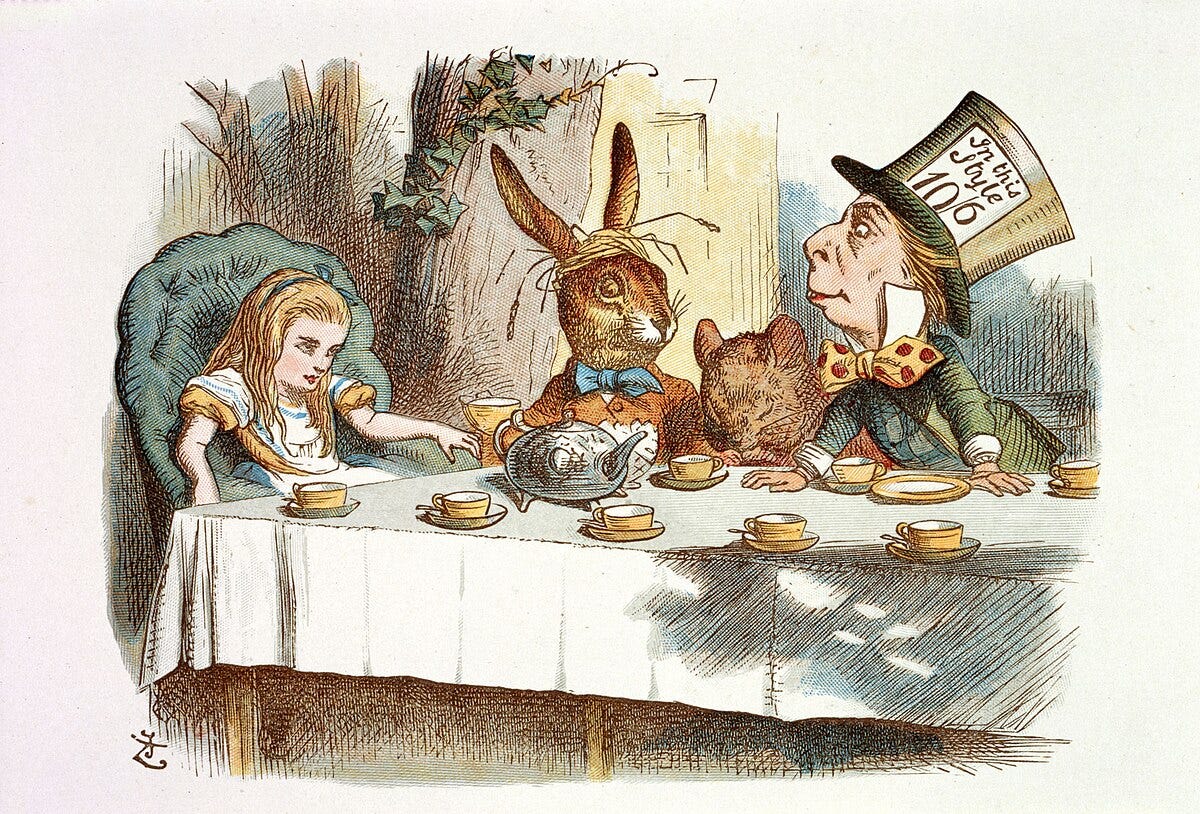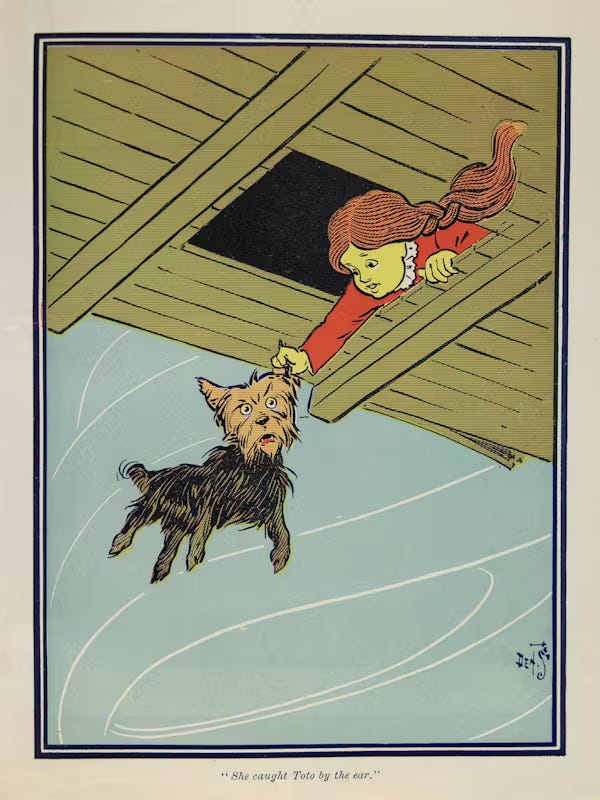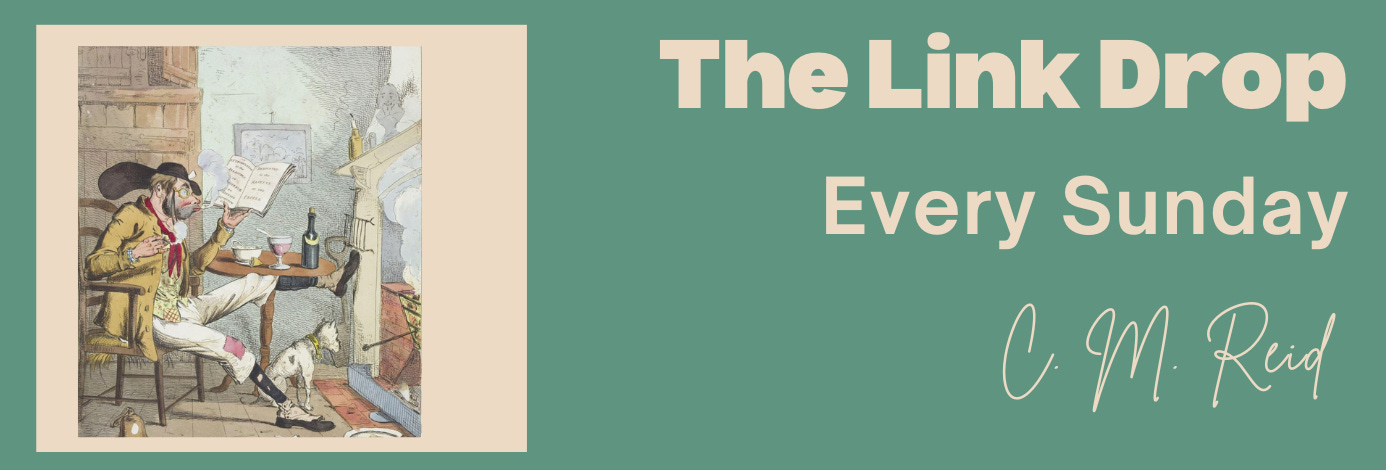The Link Week Drop, Week 27, 2025.
XIII: Your Alternative (intervention) to the Social Media Feed.
Thanks to everyone who has recently subscribed to The Link Drop. If you enjoy this free publication, consider supporting my work through the ‘Buy Me A Coffee’ button. A small amount goes a long way in supporting my writing.
I also publish SubStack’s The Ink-Stained Desk, a corner of the internet dedicated to all things reading, writing, and the transformative power of story. Regular features are Genre Genaology, Book Reviews, and Original Fiction. If this sounds like it might add value to your week, head over and take a look around.
This week on The Link Drop,
We are reading short fiction, thinking about what food can mean in fiction and remind ourselves never give up on our art.
Lessons for Life: Never Let the Paint Dry.
By Nancy K. Napier Ph.D
Psychology Today.
A short article/ reminder for all of us creatives out there, encouraging us to ‘re-see’ our work and assumptions, maintain momentum, and recognise how creative endeavours enrich our lives.
The Library of the Apocalypse.
By Rati Mehrotra.
Clarkesworld Magazine.
Yep, just me, still on the short story bandwagon, here’s a really good one! In a desolate, post-apocalyptic Toronto, Ged-4, a combat android, leads a dwindling group of linked survivors who seek the mysterious Library of the Apocalypse, a portal to vivid story worlds that offers temporary escape but often claims those who enter.
Francisco Goya’s Descent into Madness: The Disturbing Black Paintings.
By Kerigan Pickett, BA Art History (History Concentration)
An interesting biographical art analysis of Francisco Goya's personal suffering, societal disillusionment, and the political turmoil of his time influenced his shift from vibrant court painter to the creator of the haunting ‘Black Paintings’.
JSTOR Readings This Week
Get your free JSTOR accounts at the ready! (No, this is not sponsored. I’m just so grateful to be able to read 100 academic articles a month for free and want to shout it from the rooftops!)
by Lyytikäinen, Pirjo.
In Writing Emotions: Theoretical Concepts and Selected Case Studies in Literature, edited by Ingeborg Jandl et al., transcript Verlag, 2017, pp. 247–64.
This is one of the most interesting reads I have recently dug up. Discusses the various textual elements that trigger emotional responses in readers, using Edgar Allan Poe's ‘The Fall of the House of Usher’ as a primary example. It explores how authors' linguistic and stylistic choices, character portrayals, plot, and even object descriptions contribute to the overall emotional atmosphere and intended ‘authorial audience’ experience of a literary work.
Food and Power: Homer, Carroll, Atwood and Others.
By Nicholson, Mervyn.
In Mosaic: A Journal for the Interdisciplinary Study of Literature, vol. 20, no. 3, 1987, pp. 37–55.
This article analyses the symbolic role of food in various texts, arguing that it serves as a central metaphor for power dynamics. Nicholson explores how food, and its absence, illustrate themes of control, independence, and the "eater-eaten" hierarchy within society, drawing parallels to Freudian dream analysis, mythology, and social theories like Malthusianism.

John Tenniel - Illustration from The Nursery Alice (1890) — Source.
What I Enjoyed On Substack This Week.
The Eyes of the World.
Lewis’s first mistake is dismissing the strange, wriggling black lines he sees when he closes his eyes, dismissing them as a minor ailment. Chilling cosmic horror, from in the sea.
Benjamin's simple rule for buying books.
Walter Benjamin's evolving philosophy of book collecting. It highlights how Benjamin's passion transcended mere consumption, viewing collecting as an act of love, salvation for forgotten texts, and a way to live within and connect with the vast "magic encyclopedia" of human knowledge and history.
That’s it from The Link Drop this week. I hope you’ve found something that piqued your interest, have a great week, and I’ll see you next Sunday.
C M Reid at The Link Drop.






